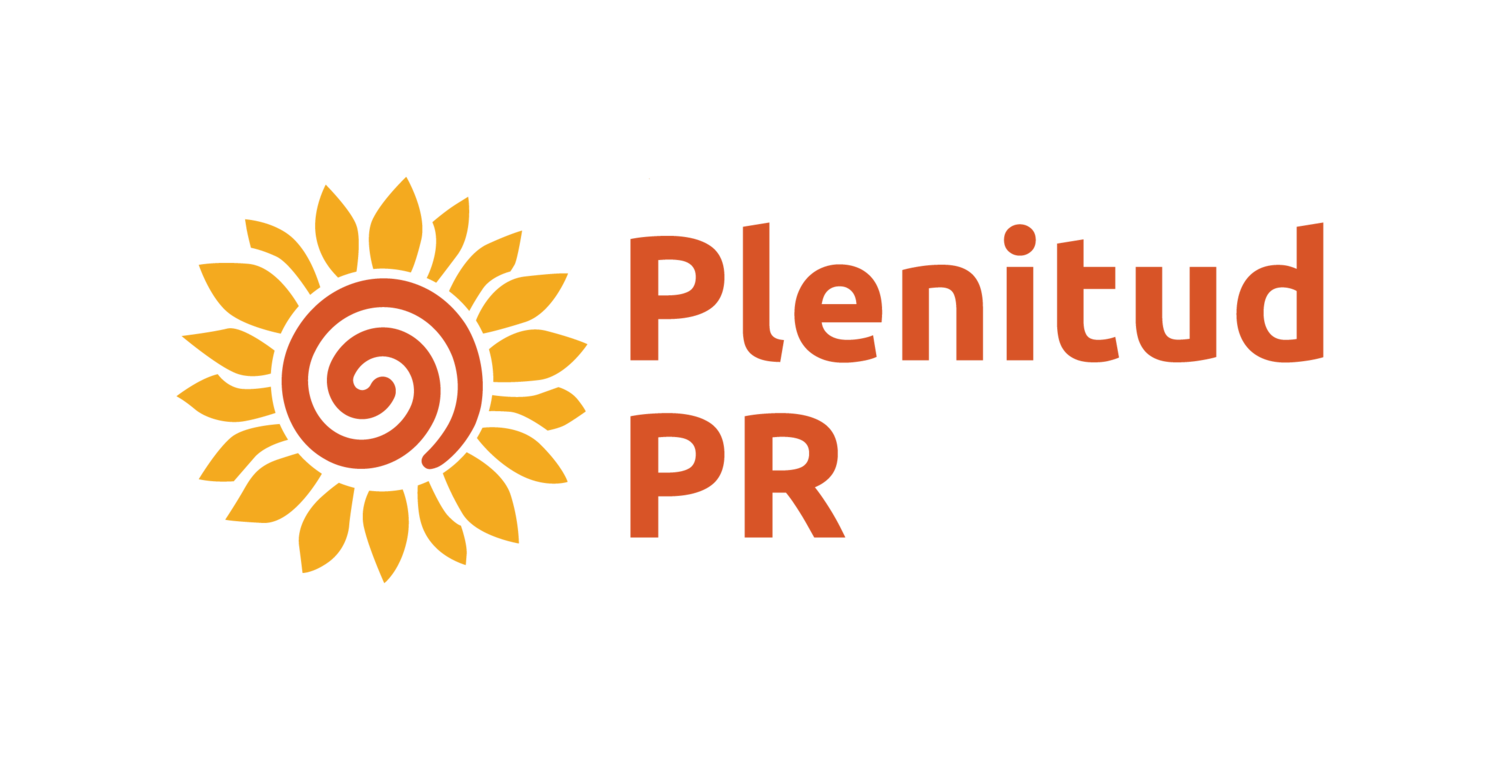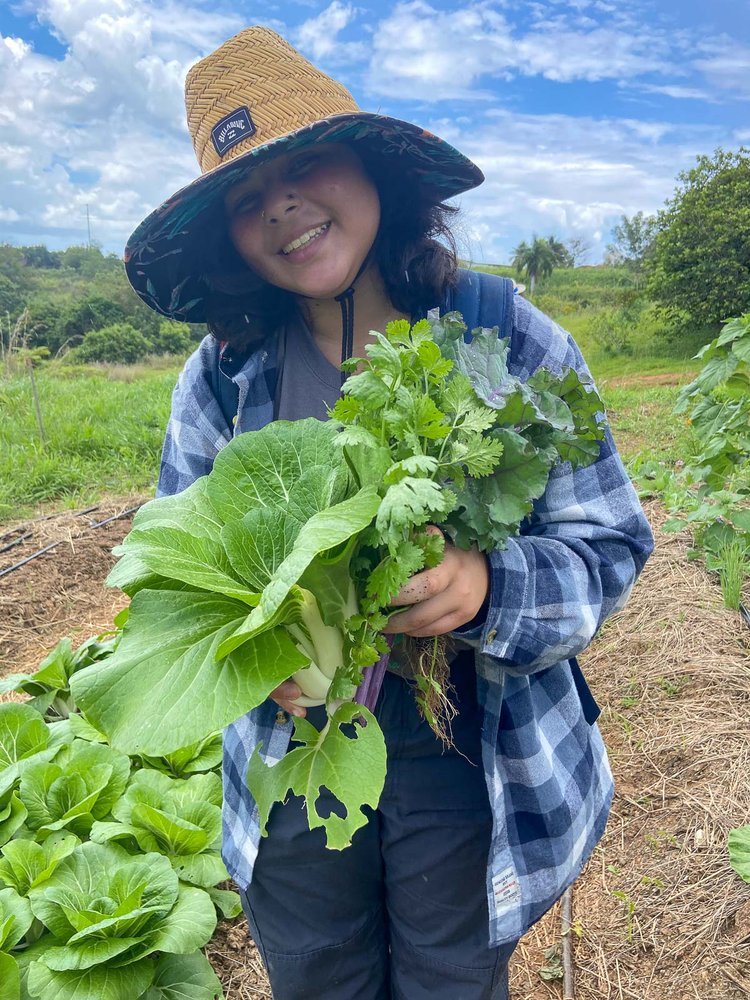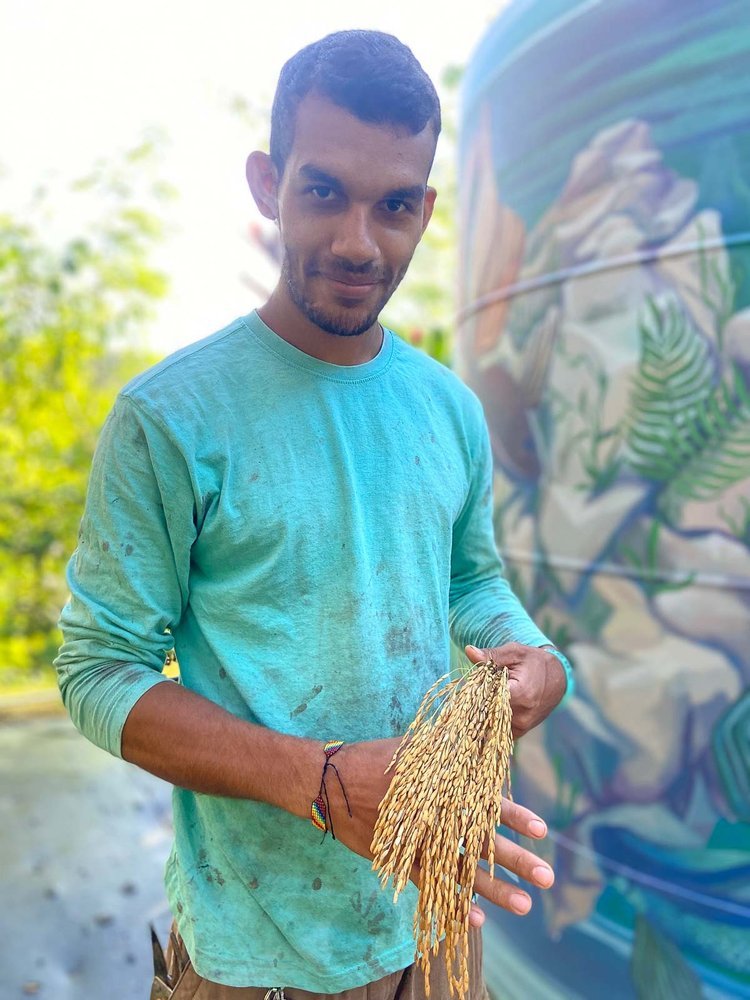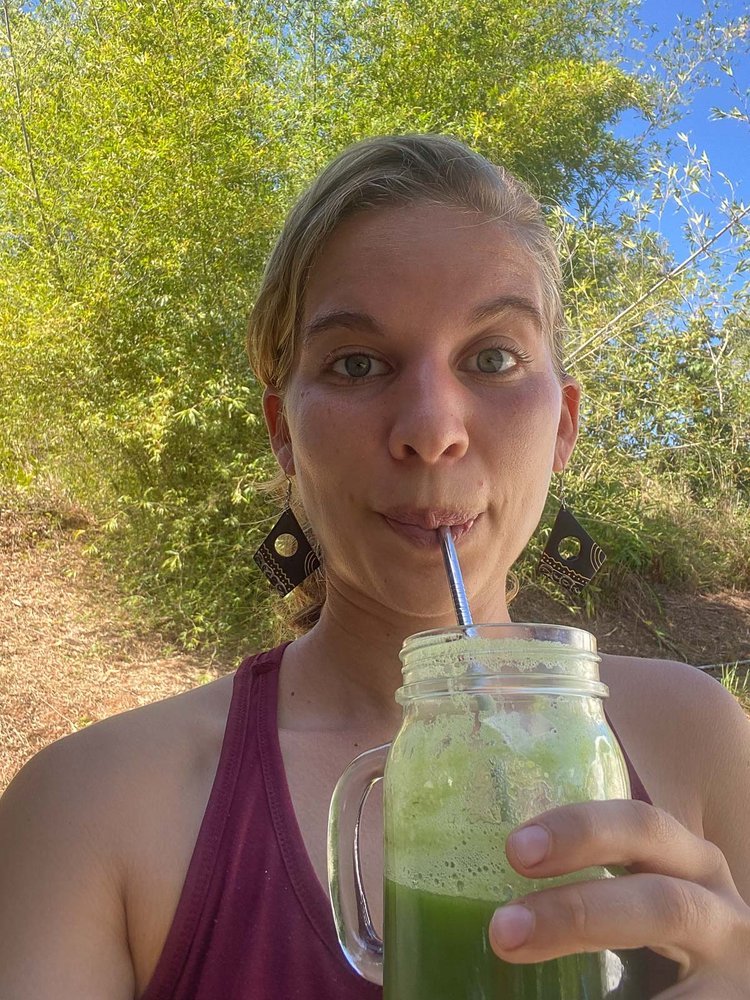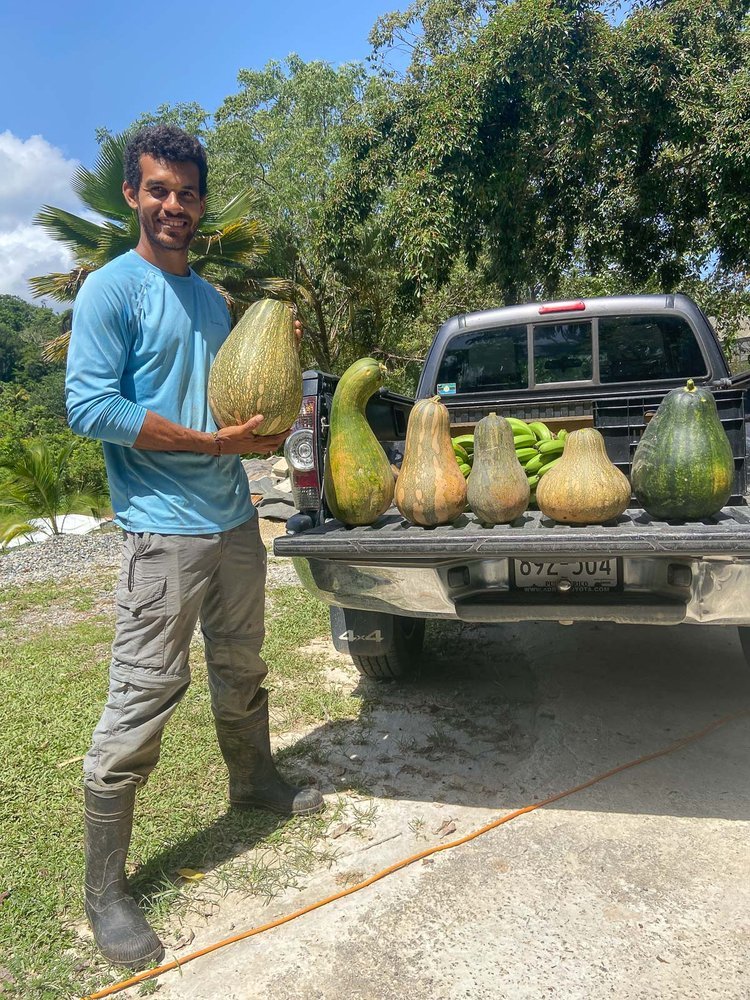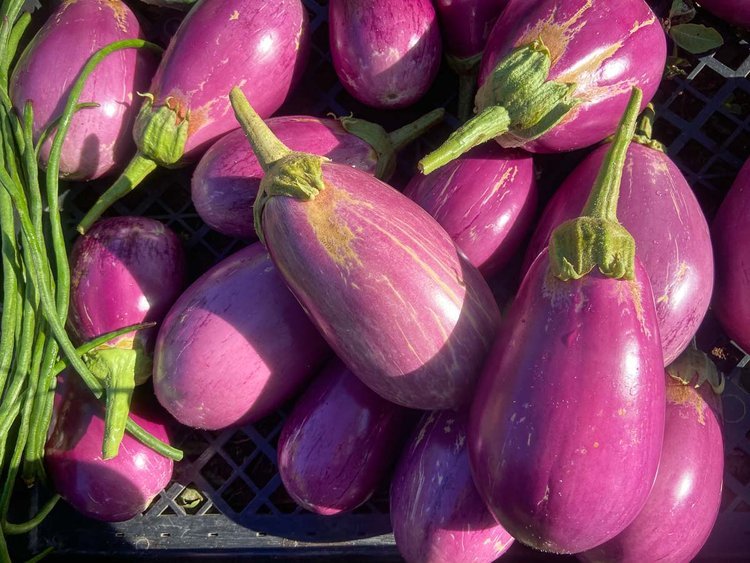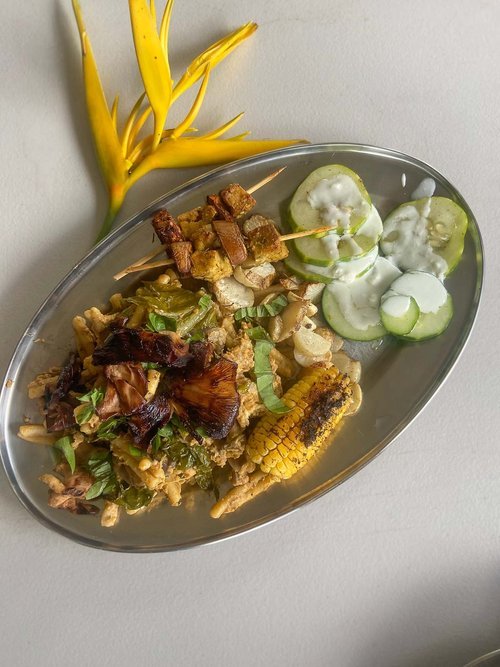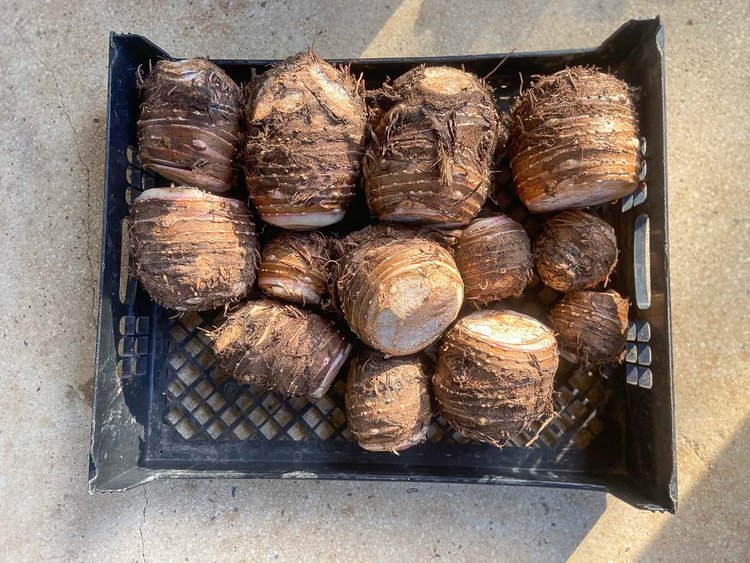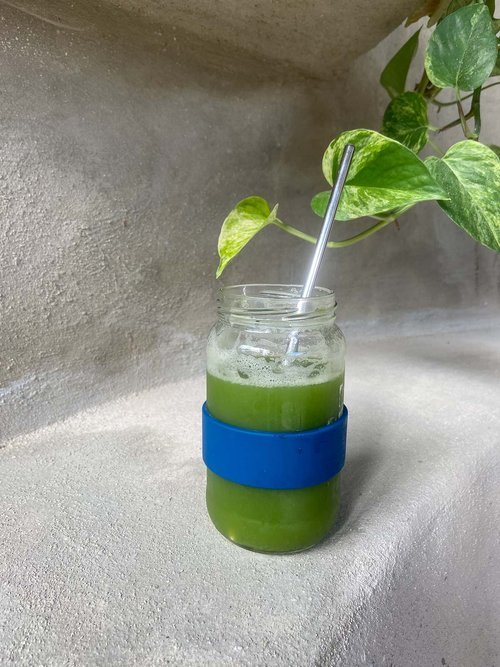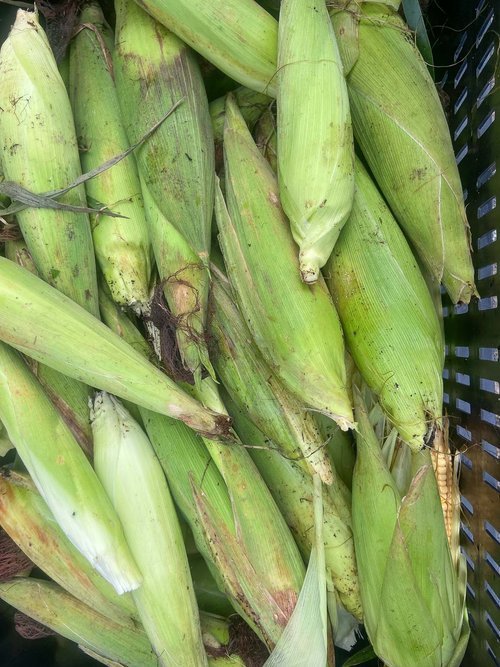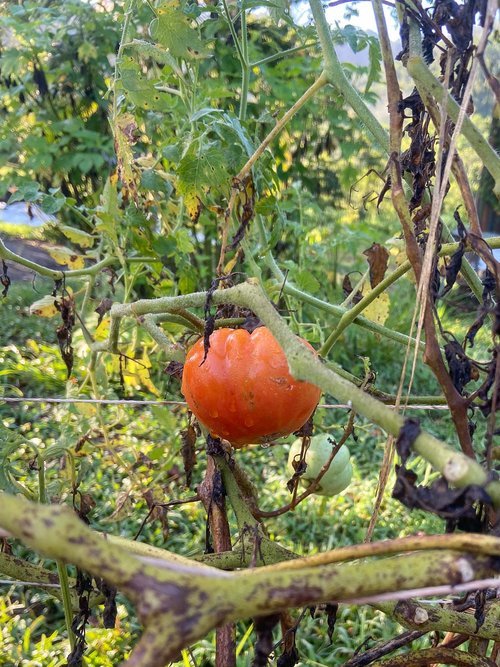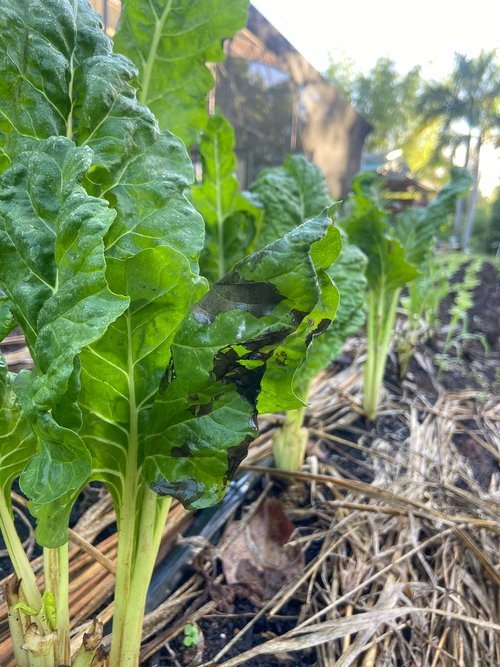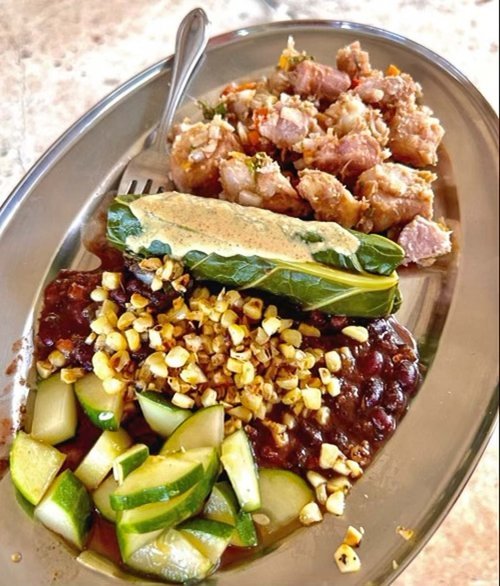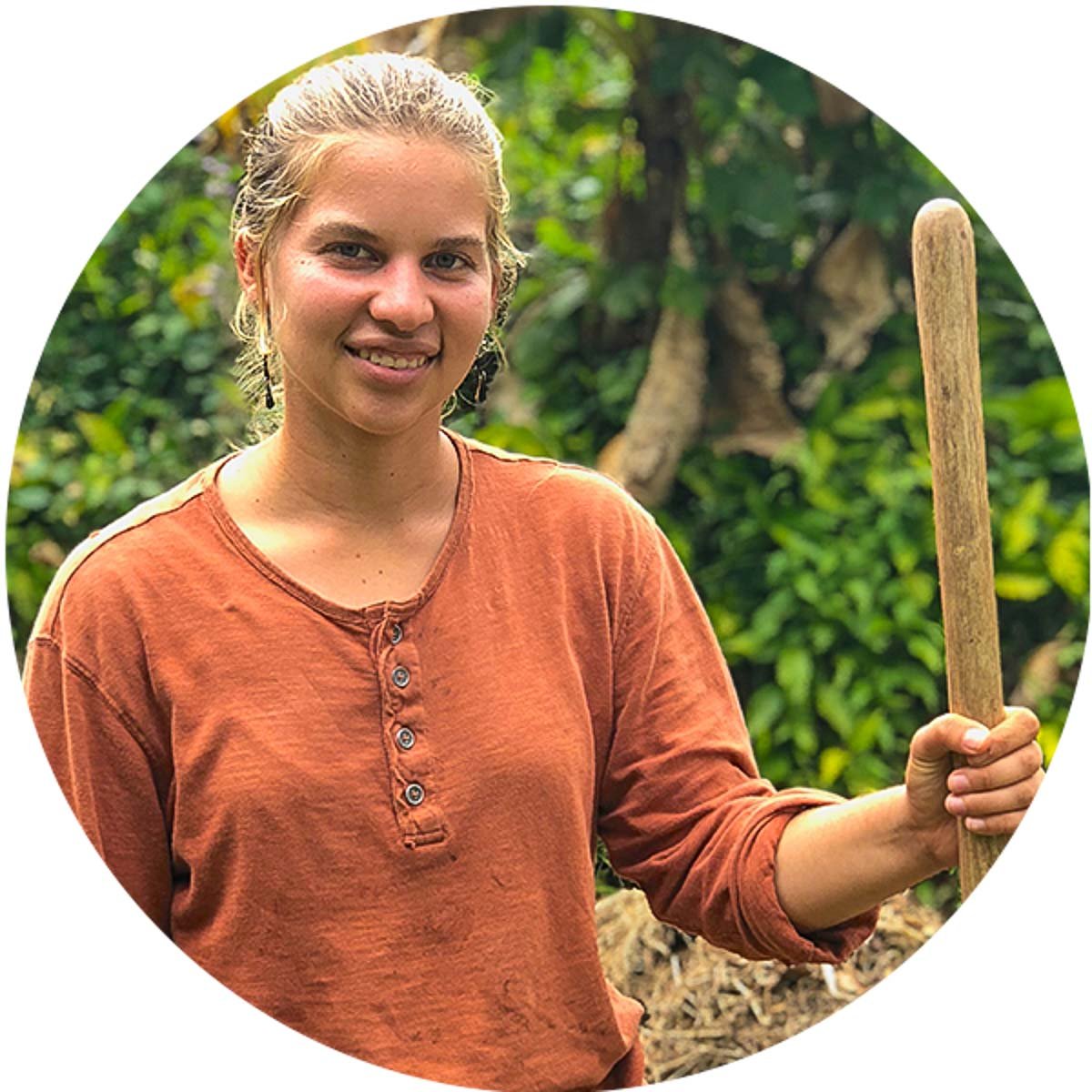Farmers Persevering Amid the Climate Crisis
It seems that every summer it is getting hotter and hotter. This year, we registered 109°F here at Plenitud PR. As farmers, we are directly feeling the intense heat! Did you know that as farmers, our risk of death from heat-related illness is 20 times that of the rest of the civilian workforce?
In northern countries, farmers often have a break during the winter, as it is too cold to grow food, and therefore summer is maximized for production. In Puerto Rico, it is completely different because it is hot enough to plant and grow all year round. However, when summer comes around, the weather conditions are so challenging that we want to stop planting and take a breather.
What keeps us persevering is the reality that to continue eating, we need to keep planting.
Summer not only brings intense heat–it also brings increased rainfall in our geographic region. The effect of this weather combination on our crops is stagnation and an increase in fungal and bacterial diseases. This can mean a blow to our agricultural economy through decreased production and therefore sales as well. Along with this, many families tend to take vacations and change their routine, resulting in less of a demand for local products during this time. Not to mention the fact that the climate crisis for Puerto Rico means hurricanes are expected to increase in frequency and intensity in summers, which is devastating to food production.
The reality is that temperatures are going to continue to rise, so we have to learn to produce under these circumstances to be resilient. This makes things complex and challenging, yes – though at Plenitud PR we face it by first taking care of each other as a family, in gratitude for the gift of planting and growing, and with an attitude of service in our role as food producers.
We’ve also implemented some agroecological tricks that help us manage the day to day:
1. To protect ourselves from the sun, we take advantage of the cool morning by starting early. We wear long pants and long-sleeved shirts, and usually a hat as well.
2. We keep a lot of water nearby to hydrate constantly (we add coriander and fennel seeds to the water to cool the body!) and we have planted coconuts on the roads to have them accessible when a natural serum of electrolytes is needed.
3. We protect the soil and crops from the heat with soil covers (such as patchouli and bamboo leaves) and sarán (a mesh to give a little shade).
4. We plant crops more adapted to the wet and hot season. We focus on planting trees, eggplants, corn, pumpkin, okra (guingambó or quimbombó), dry rice, root crops and Asian crops such as bok choy, mustards, bekana (looks like lettuce) and collards that were historically grown in Puerto Rico and are now less common.
I would like to elaborate on this last point: for our lifestyle to be sustainable in Puerto Rico, we have to relearn to eat a greater variety of crops according to the production that each season allows. Our typical Puerto Rican diet still consists of the same 10-12 products, and we think that eating vegetables means just adding a bit of lettuce and tomatoes to our plate. In reality, we can produce and consume a wider variety of food as we did in the past. By continuing to only eat these same products and not expand beyond what we are comfortable eating, we force farmers to expend too many resources and labor to keep weak and out-of-season crops alive in the summer. In addition, we learned with past hurricanes that in order to have food after disasters, it is necessary to diversify the crops we are planting, as well as the farming design and techniques we are using.
It is clear that food, agriculture and knowledge on how to adapt to the climate crisis are not just in the hands of the people who work directly on the land–we share the responsibility with the consumers of our harvest. Therefore, we invite you to join the effort of your local farmers the remainder of this summer - and through the seasons of the tropics throughout the year - by prioritizing buying their products over those that are imported! Have an adventure practicing new recipes with the crops they have available according to the season, and let us know about your creations!
Currently at Plenitud PR, we have made the effort to join producers in our western region, offering our products together in an virtual agricultural market Productos Agroecológicos. You can support farmers through purchasing local, in-season produce every week. Check it out here! :
Keep supporting your local farmers this summer. In collaboration, we can continue to manage the climate crisis and come out stronger than ever.
